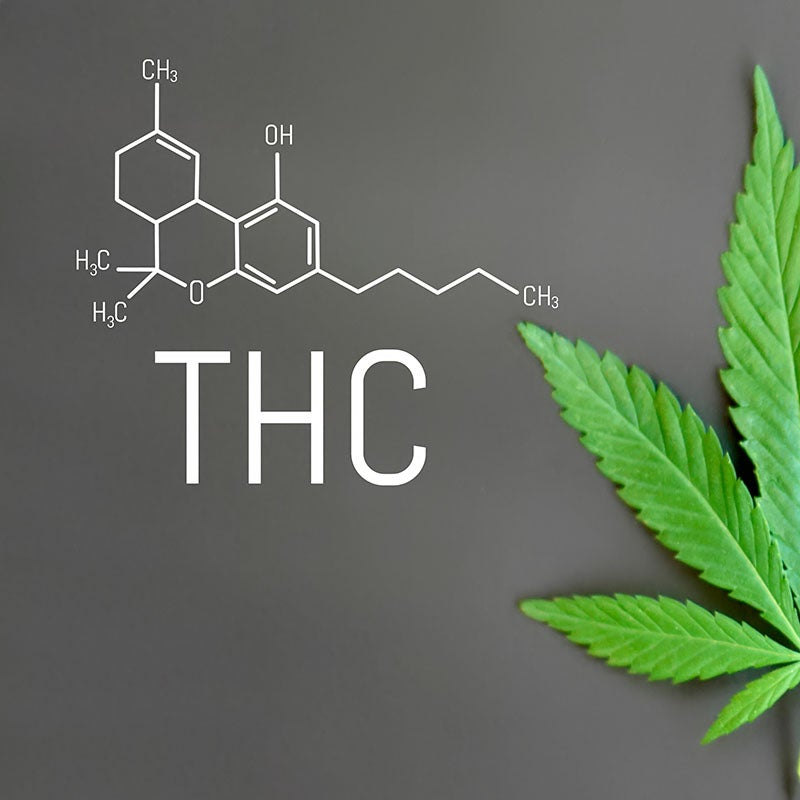Introduction: As the legalization of cannabis continues to spread globally, discussions surrounding the potency of tetrahydrocannabinol (THC), the primary psychoactive compound in cannabis, have become increasingly prominent. While THC offers various therapeutic benefits, its high potency also raises concerns about potential risks and adverse effects. In this article, we delve into the complex landscape of THC potency, exploring its benefits, risks, and the importance of finding a balance that maximizes therapeutic potential while minimizing harm.
Understanding THC Potency: THC is one of the many cannabinoids found in the cannabis plant, known for its psychoactive effects that produce feelings of euphoria and relaxation. The potency of THC refers to the concentration of this compound in a cannabis product, typically measured as a percentage of the total weight. In recent years, there has been a trend towards higher THC potency in cannabis strains and products, driven by consumer demand for stronger and more potent experiences.
Benefits of THC:
- Pain Relief: THC is well-known for its analgesic properties and is commonly used to alleviate chronic pain associated with conditions such as arthritis, neuropathy, and multiple sclerosis. It interacts with the body’s endocannabinoid system to modulate pain perception and reduce inflammation, providing relief for those suffering from debilitating pain.
- Management of Nausea and Vomiting: THC has been shown to effectively reduce nausea and vomiting, making it a valuable treatment option for patients undergoing chemotherapy or experiencing symptoms of conditions such as HIV/AIDS or gastrointestinal disorders.
- Appetite Stimulation: THC has a well-documented effect on increasing appetite, commonly referred to as the “munchies.” This appetite-stimulating effect can be beneficial for individuals experiencing appetite loss or wasting associated with conditions like cancer or HIV/AIDS.
- Management of Mood Disorders: THC has mood-altering effects that can help alleviate symptoms of mood disorders such as depression and anxiety. While high doses of THC may exacerbate anxiety in some individuals, low to moderate doses have been shown to produce anxiolytic effects and improve mood.
Risks and Considerations:
- Psychotropic Effects: The psychoactive properties of THC can induce feelings of intoxication, impairment, and paranoia, particularly at higher doses. Individuals who are sensitive to the psychoactive effects of THC or have a history of psychiatric disorders may be at an increased risk of experiencing adverse reactions.
- Impaired Cognitive Function: Prolonged or heavy cannabis use, especially products with high THC potency, has been associated with impaired cognitive function, memory loss, and decreased executive function. These cognitive deficits can impact daily functioning and may persist even after cessation of cannabis use.
- Developmental Concerns: Adolescents and young adults are particularly vulnerable to the adverse effects of THC due to ongoing brain development. Early and frequent exposure to high-potency THC products may disrupt neural pathways, leading to long-term cognitive deficits and increased susceptibility to mental health disorders.
Finding a Balanced Approach:
- Personalized Dosage: When using THC-containing cannabis products, it’s essential to start with a low dose and gradually titrate upwards to achieve the desired effects while minimizing the risk of adverse reactions. Pay attention to individual tolerance levels, sensitivity, and personal preferences when determining the appropriate dosage.
- Balanced Cannabinoid Profile: Consider using cannabis products with a balanced cannabinoid profile, including both THC and CBD, as well as other minor cannabinoids and terpenes. The synergistic interaction between these compounds, known as the entourage effect, may enhance therapeutic benefits while mitigating potential risks associated with high THC potency.
- Responsible Use Practices: Practice responsible cannabis use by consuming in moderation, avoiding excessive or frequent use, and prioritizing harm reduction strategies such as using lower-potency products, taking breaks from cannabis use, and avoiding driving or operating machinery while intoxicated.
Conclusion: THC potency plays a significant role in shaping the therapeutic potential and potential risks of cannabis products. While high-potency THC may offer valuable benefits for pain relief, nausea management, appetite stimulation, and mood disorders, it also poses risks such as psychotropic effects, impaired cognitive function, and developmental concerns, particularly among vulnerable populations. By finding a balance between maximizing therapeutic benefits and minimizing harm through personalized dosing, balanced cannabinoid profiles, and responsible use practices, individuals can harness the therapeutic potential of THC while minimizing potential risks and adverse effects.
Read More:
Black Cherry Punch: Exploring the Unique Flavors of This Fruity Hybrid
Creamz Weed Strain: Canada’s Smoothest and Creamiest Indica
Lava Cake Cannabis: Melt Stress Away with Canada’s Most Relaxing Strain













